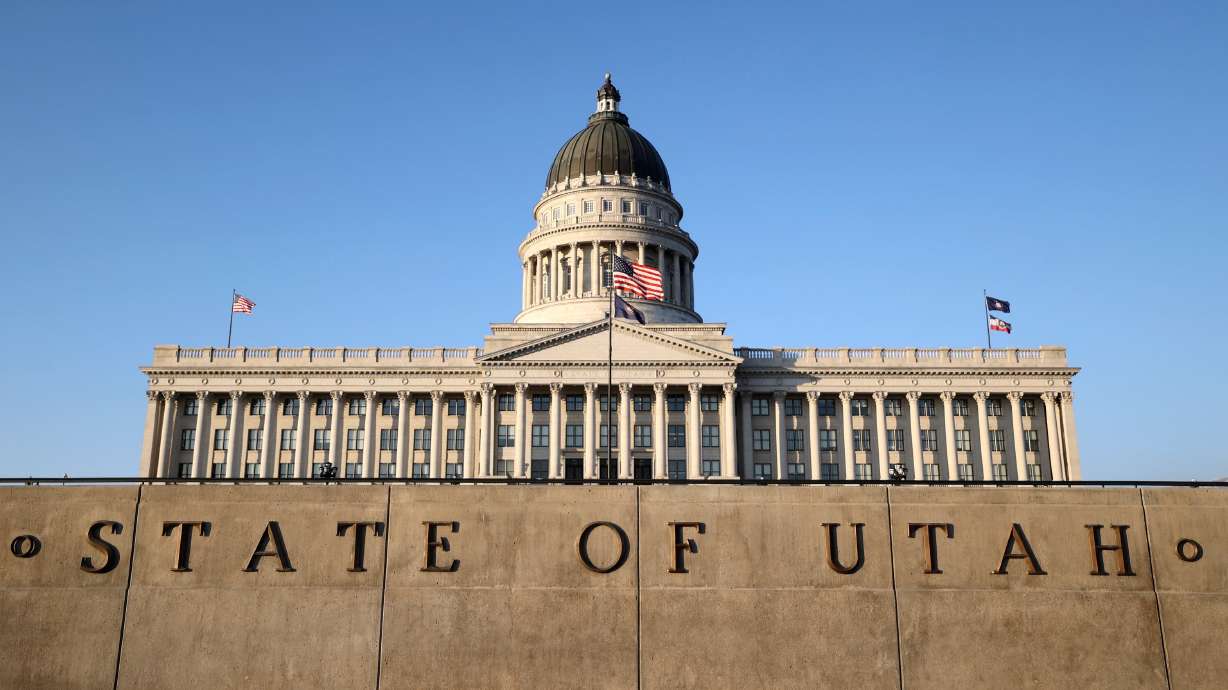Estimated read time: 4-5 minutes
- HB129, allowing adult adoptees access to original birth certificates, passed Utah Legislature.
- The bill, sponsored by Rep. Raymond Ward, awaits Gov. Spencer Cox's decision to sign or veto.
- Proponents argue access provides closure, identity and vital medical history for adoptees.
SALT LAKE CITY — A bill allowing adult adoptees to access their original birth certificate passed through the Utah Legislature Friday with a final vote in the House.
HB129, sponsored by Rep. Raymond Ward, R-Bountiful, will now go to Gov. Spencer Cox for him to either sign or veto. It passed through the Senate unanimously on Thursday and was brought back to the House because changes were made in the Senate. In the House, it passed with one representative opposed.
Currently, an adult who was part of a closed adoption who wants to see their birth certificate and adoption records has to appear before a judge, requiring them to hire an attorney. This bill would make these records easily available for any adoptee who is at least 18 years old.
Under this bill, the default would be for adoptees to be able to see their records without going in front of a judge. If a birth parent wants the record to remain sealed, they can request for that to happen.
For a parent to keep the records sealed, they would need to show that there is a genuine threat of harm if access to the records is given.
"Knowing where you come from is a basic human right, one too often denied to adoptees. Access to their original birth certificate can provide closure, identity and belonging," said Terra Cooper, an adoptive mom who spoke at the Senate committee hearing last week.
Why is this change necessary
Ward listed three reasons as to why this change should be made. The first is that it is the adoptee's record.
"That is the record of their birth, and it is fair that they should be able to see it," Ward said.
Second, he said, humans do better when they have a connection to their past. The third reason is that in family court, the legal principle followed is "we do what is best for the child," and Ward said that's what this bill does.
Cooper, said when their child's adoption was finalized, she and her husband received a birth certificate for their adoptive daughter with their names on it.
"It felt wrong then, and it feels wrong now. I was in the room where my daughter was born, but I did not give birth to her," Cooper said.
Eleven-year-old Alayna Cooper also spoke during the hearing. She said that having a birth certificate with her birth parents' names gives them credit for their role as her biological parents.
"I'm adopted, and I would love to have my birth certificate with my birth mom and birth dad on it because I love them; I love my mom and dad that adopted me too," Alayna Cooper said. "I hope that some day people realize how hard it is to be pregnant with a baby and get no credit for it."
There were multiple people who spoke in favor of the bill during the Senate committee hearing last week. One of the major things people pointed out was that these adult adoptees need access to their family medical history.
Lauralee Solimeno, who was adopted in a closed adoption in the 1970s, shared that she had to take a DNA test eight years ago to find her biological mother and then was able to get a family medical history from her.
"Having this information saved my life two years ago. I have my answers, but I would give anything to have my birth certificate with the names of my biological parents," Solimeno said.
Nicholas Dennis, another adoptee from a closed adoption, shared that he has a genetic disease inherited from his parents that will eventually kill him. He said adoptees need to be able to have their family medical information.
Another adoptee, Jori Victory, shared that she often felt she was receiving subpar medical care because, without family medical history, doctors didn't always know what tests should be run.
Alicia Foot, who gave her child up for adoption, said that she made a life-changing decision for her child without their consent, and it is important to give adoptees control back by allowing them access to their records.
"Giving adult adoptees access to their original medical record gives them some sort of their voice back; it gives them their history and a vital piece of who they are," Foot said.
Changes made to the bill
HB129 had to return to the House for a final vote after changes were made to the bill while it was in the Senate. One change made was delaying the implementation date so that the people providing these records could be fully informed on what they would need to do.
The changes made in the Senate also specified what documents would be available through this bill. It only allows access to the documents of the adoptee and not all the documents of their birth parents.









